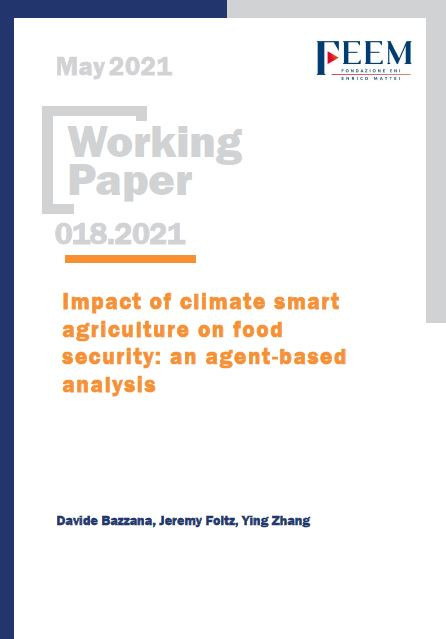Impact of climate smart agriculture on food security: an agent-based analysis

26.05.2021
Davide Bazzana (University of Brescia, Fondazione Eni Enrico Mattei); Jeremy Foltz (University of Wisconsin-Madison); Ying Zhang (Johns Hopkins University)
C63, O13, Q1, Q15, Q55
Climate Smart Agriculture, Food Security, Agent-Based Modelling, Externality, Sustainable Development
The study proposes an agent-based model to investigate how adoption of climate smart agriculture (CSA) affects food security. The analysis investigates the role of social and ecological pressures (i.e. community network, climate change and environmental externalities) on the adoption of physical water and soil practices as well as crop rotation technique. The findings reveal that CSA may be an effective strategy to improve the rural populations’ well-being for farm households with access to capital, strong social networks and access to integrated food markets. The climate scenario simulations indicate that farmers adopting CSA fare better than non-adopters, although CSA adoption does not fully counterbalance the severe climate pressures. In addition, farmers with poor connections to food markets benefit less from CSA due to stronger price oscillations. These results call for an active role for policy makers in encouraging adaptation through CSA adoption by increasing access to capital, improving food market integration and building social networks.
***
Suggested citation: D. Bazzana, J. Foltz, Y. Zhang, (2021), ‘Impact of climate smart agriculture on food security: an agent-based analysis’, Nota di Lavoro 18.2021, Milano, Italy: Fondazione Eni Enrico Mattei
